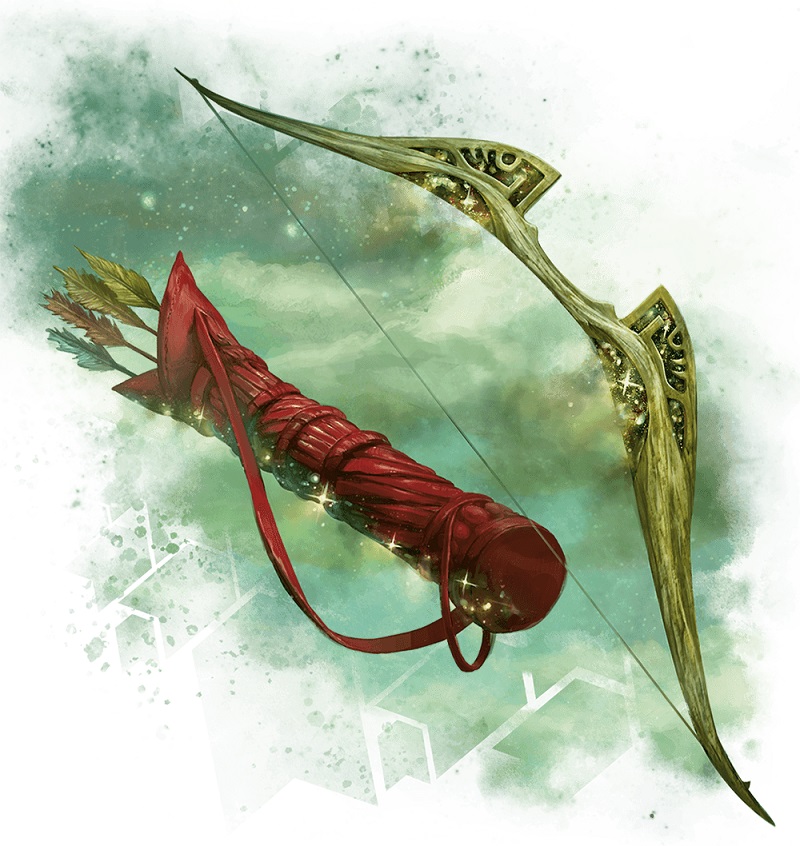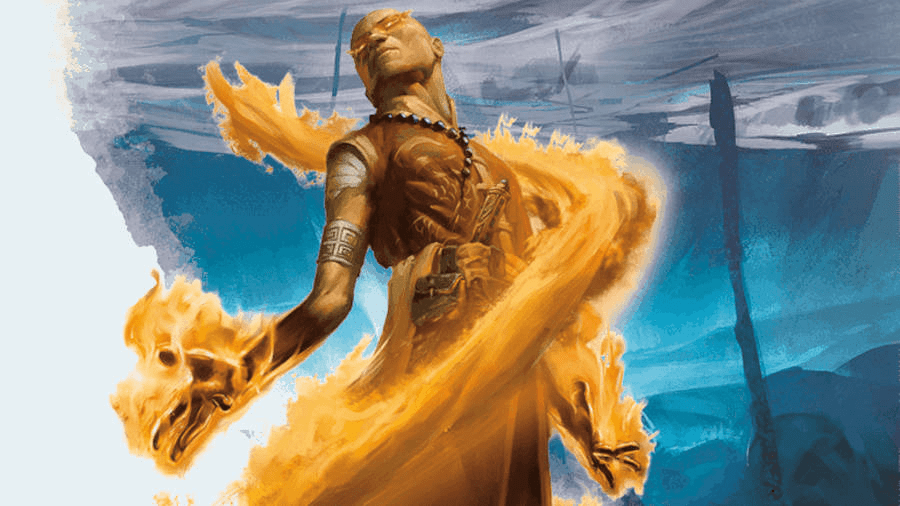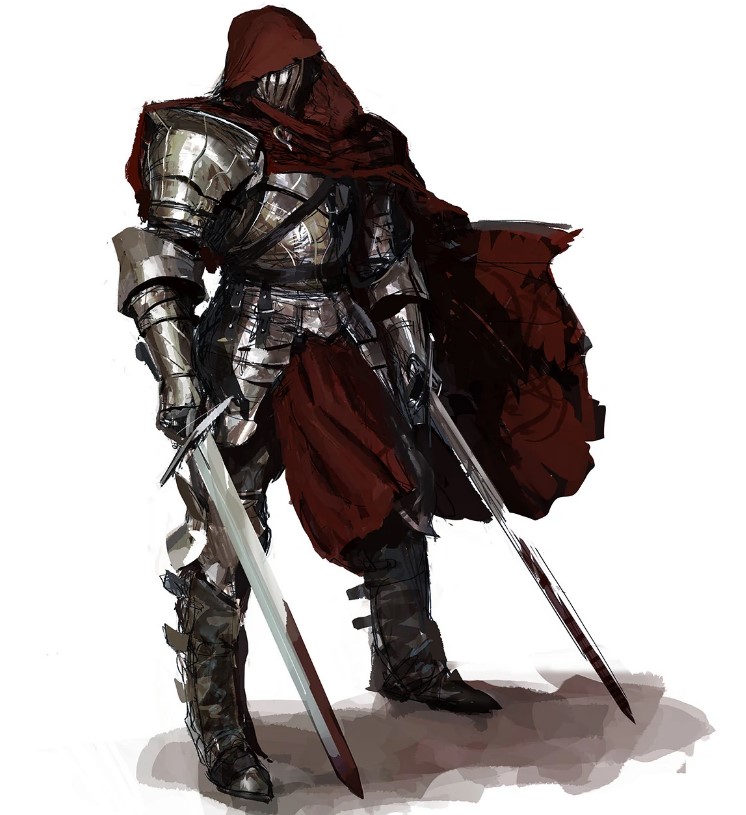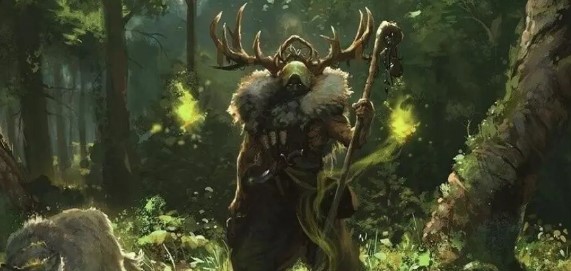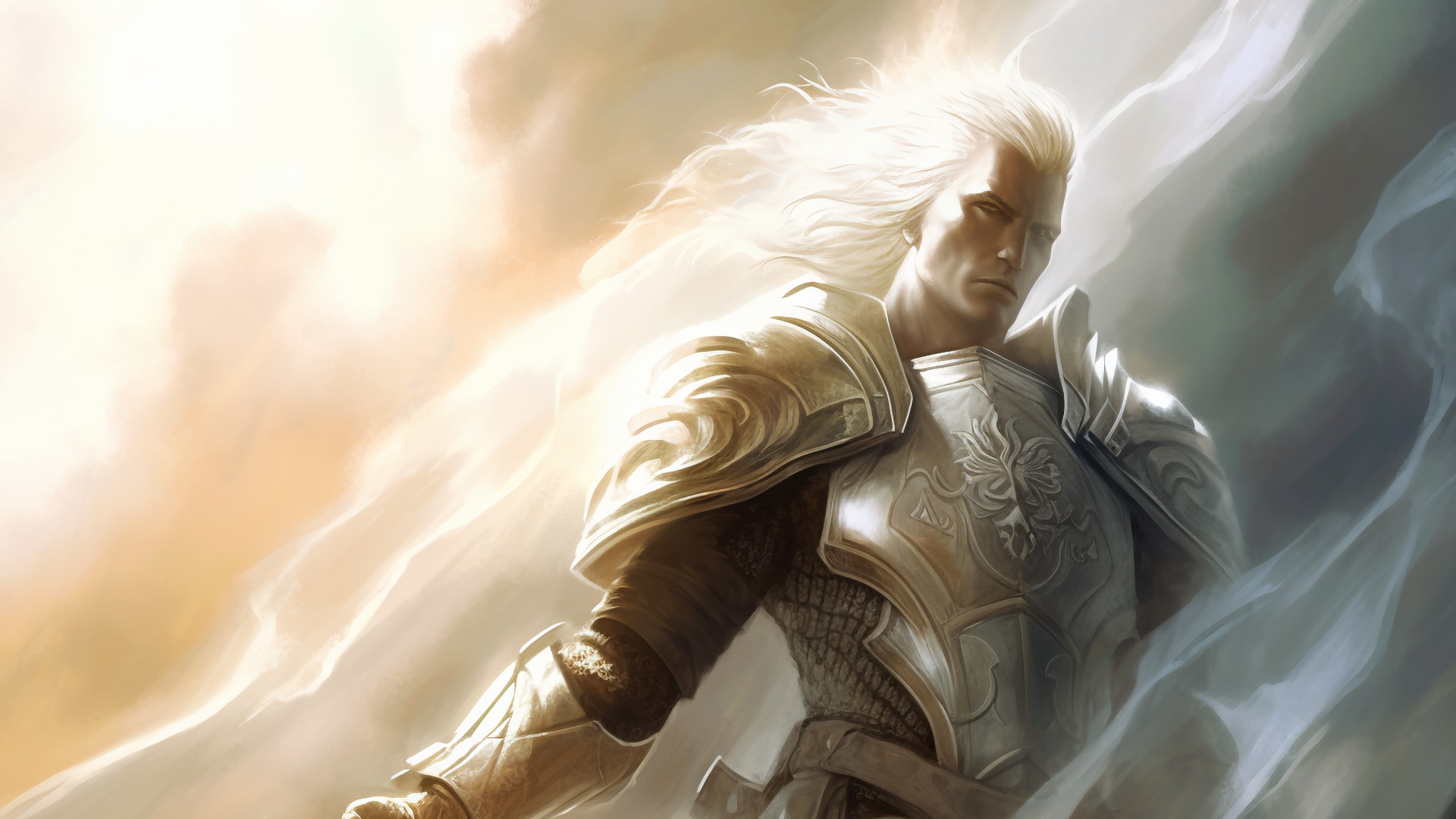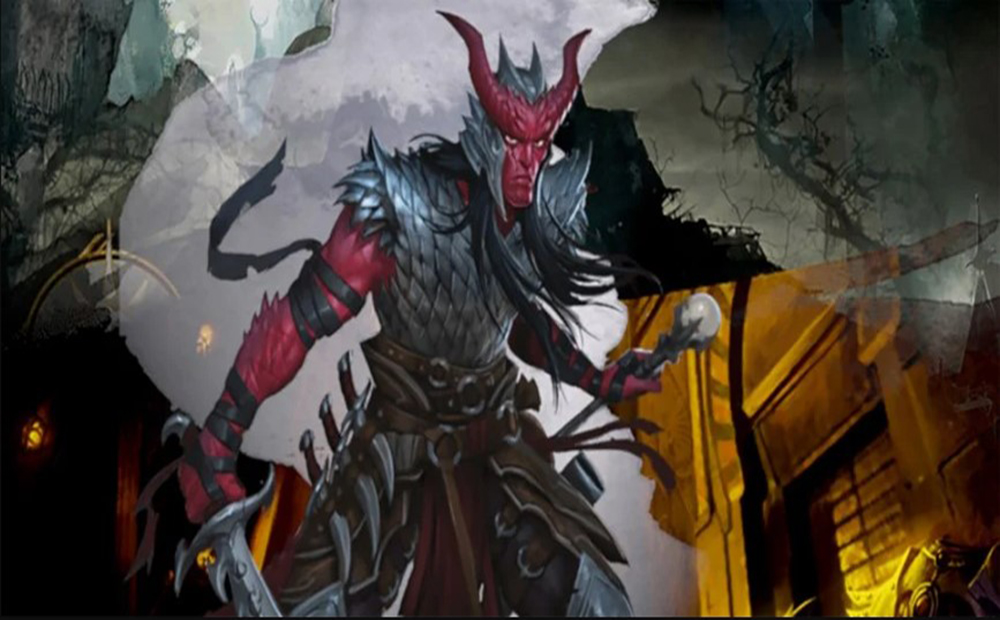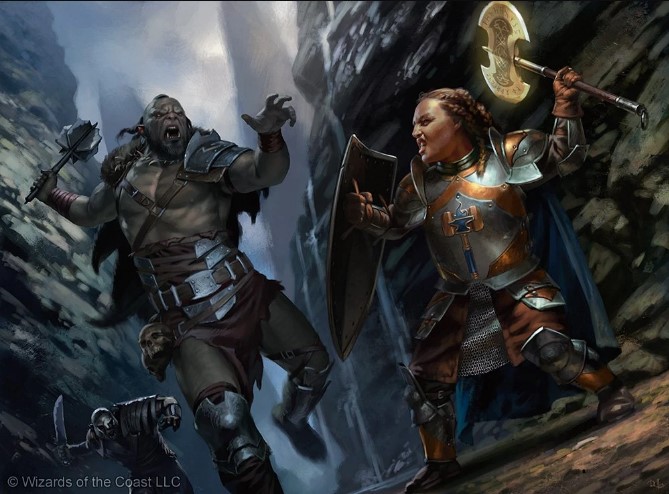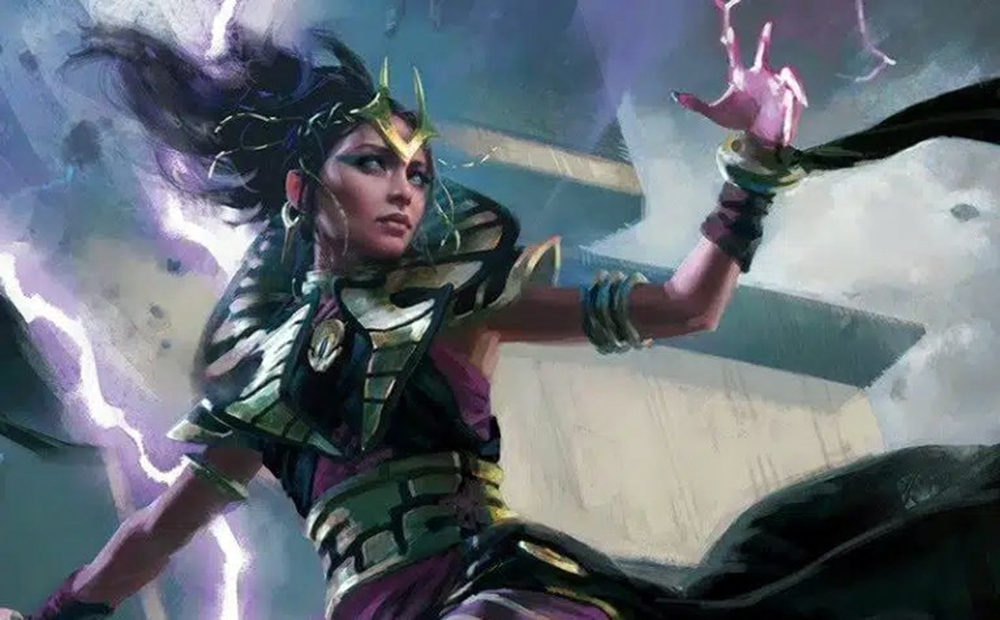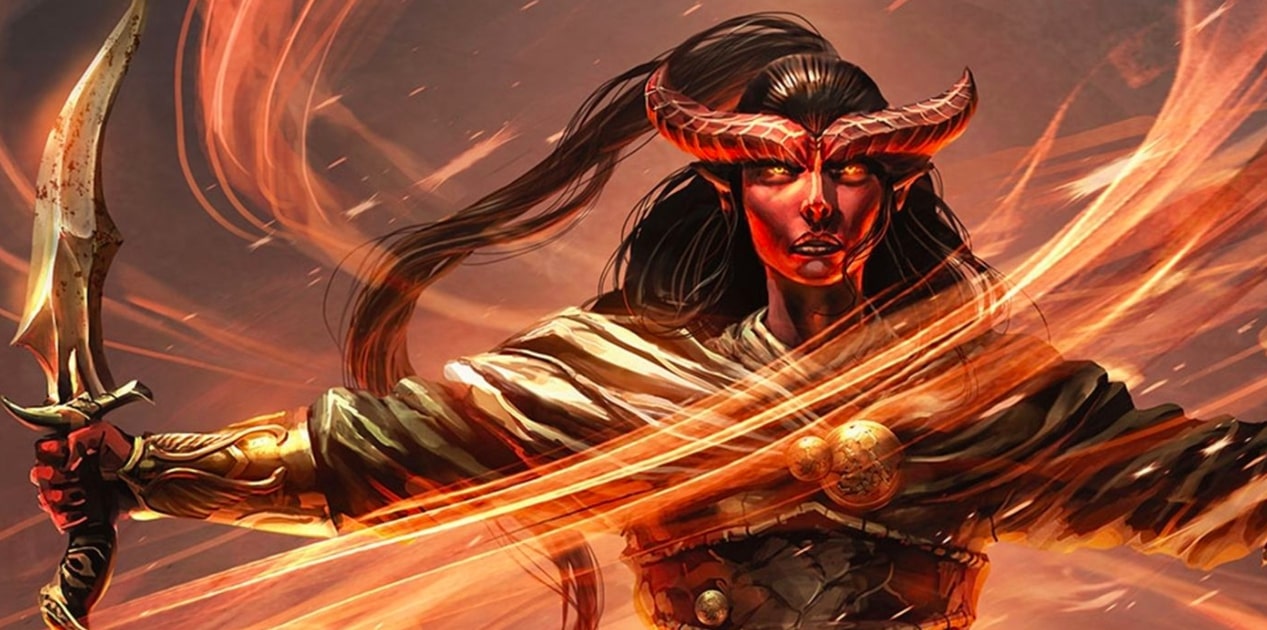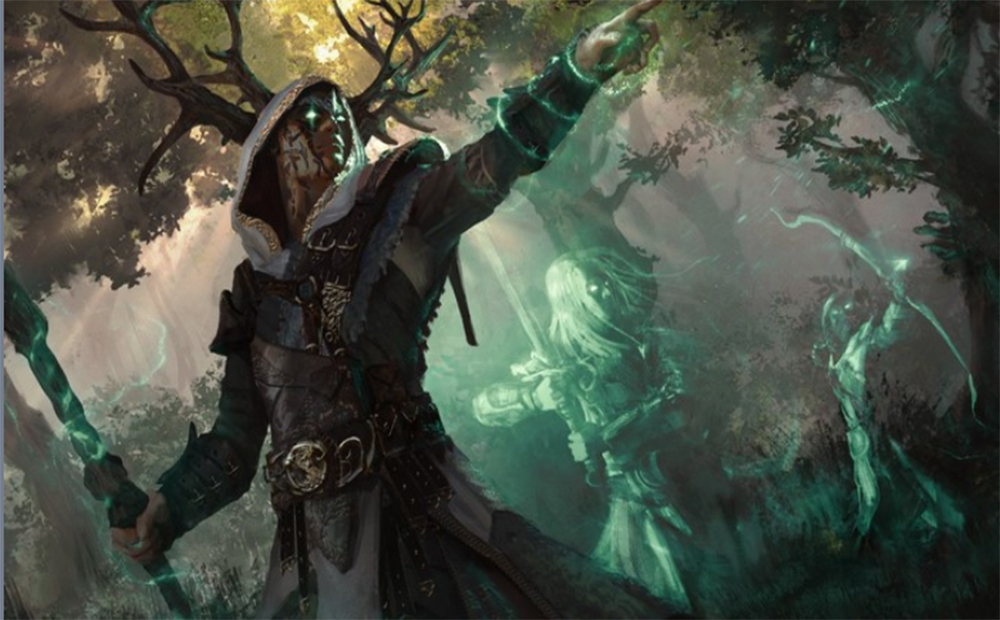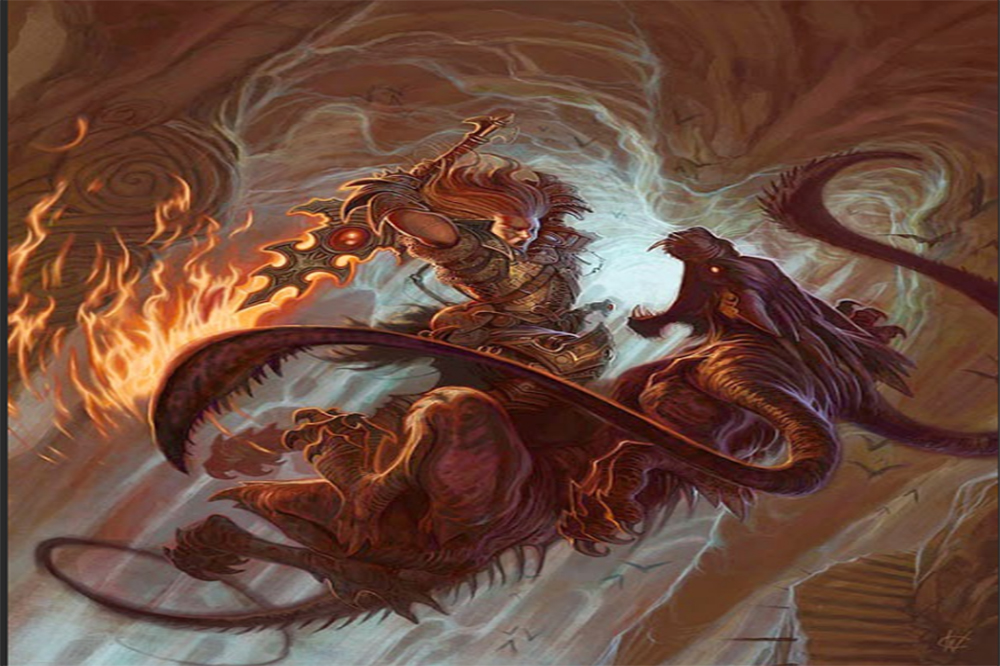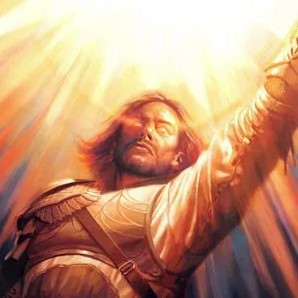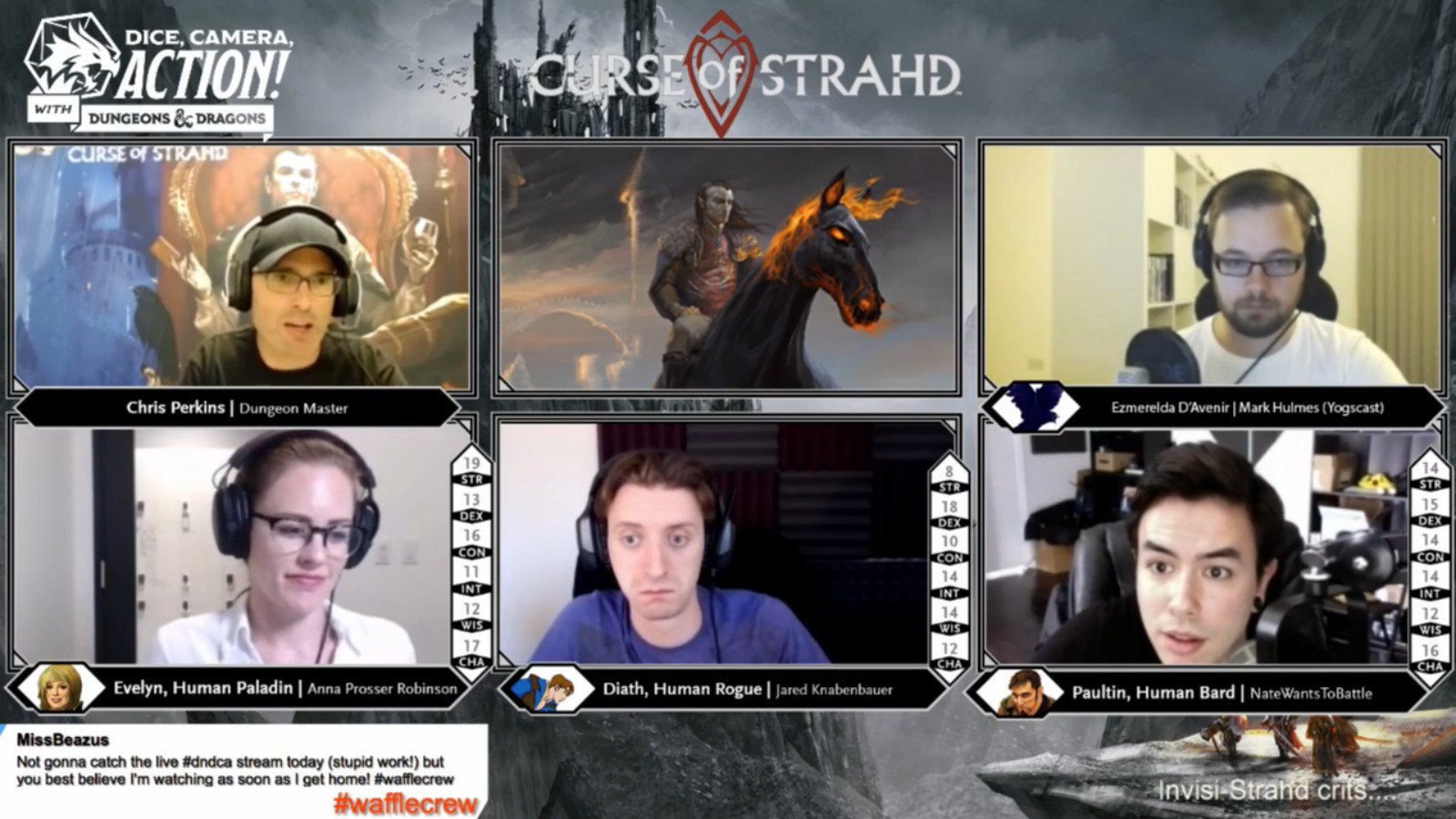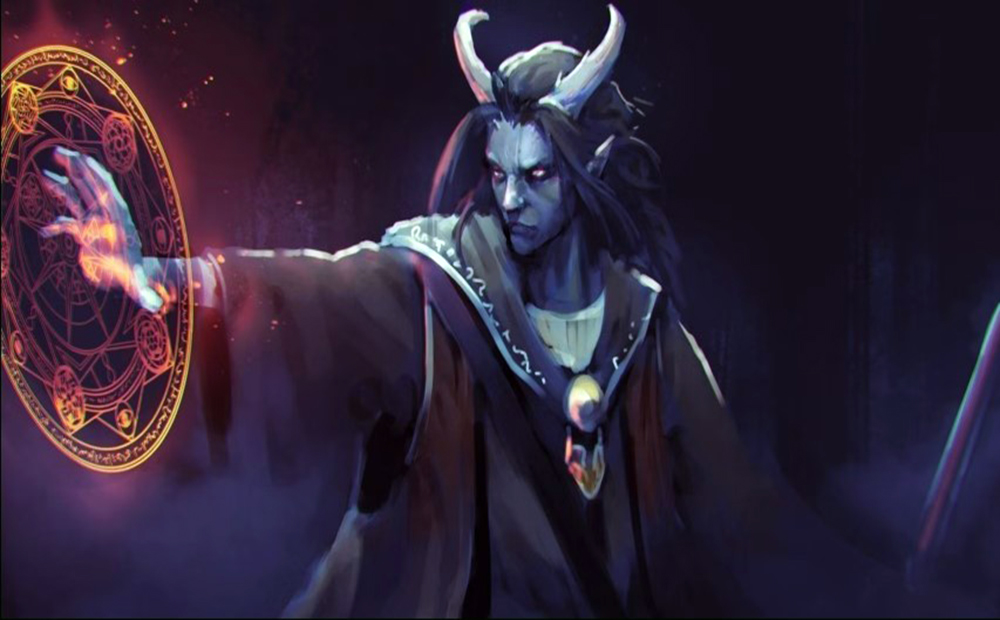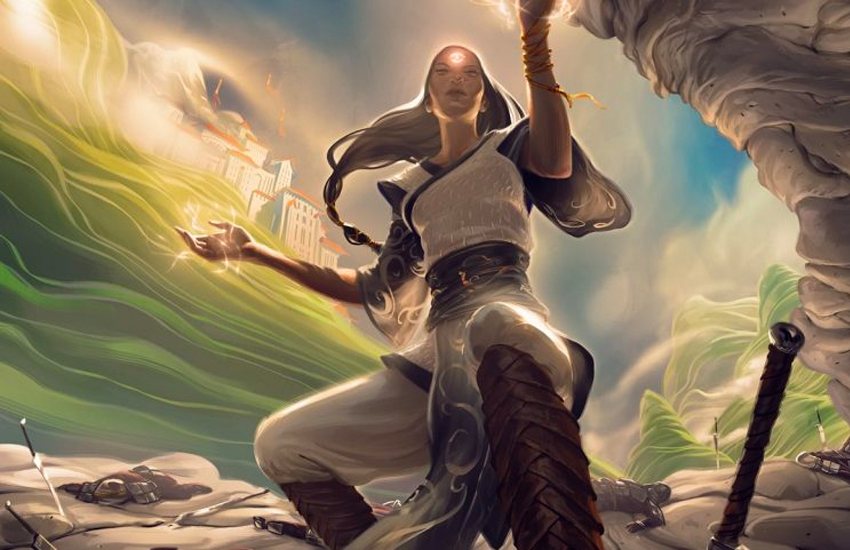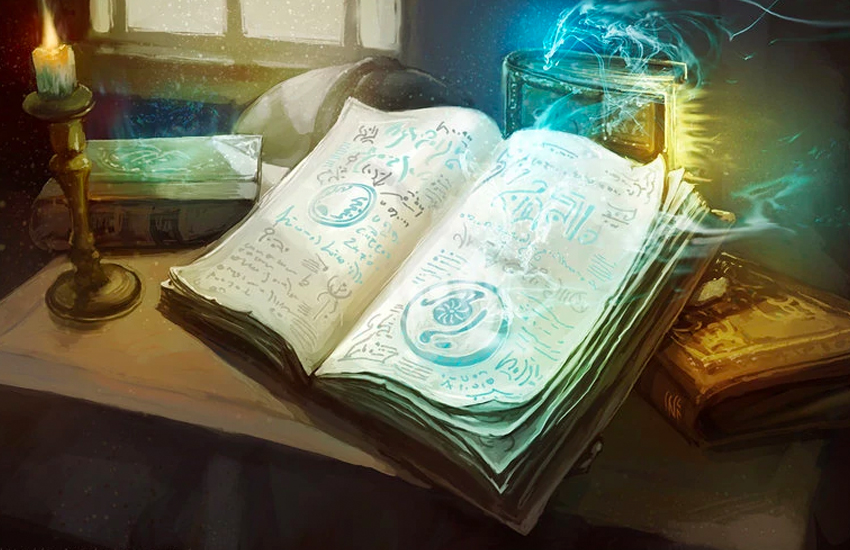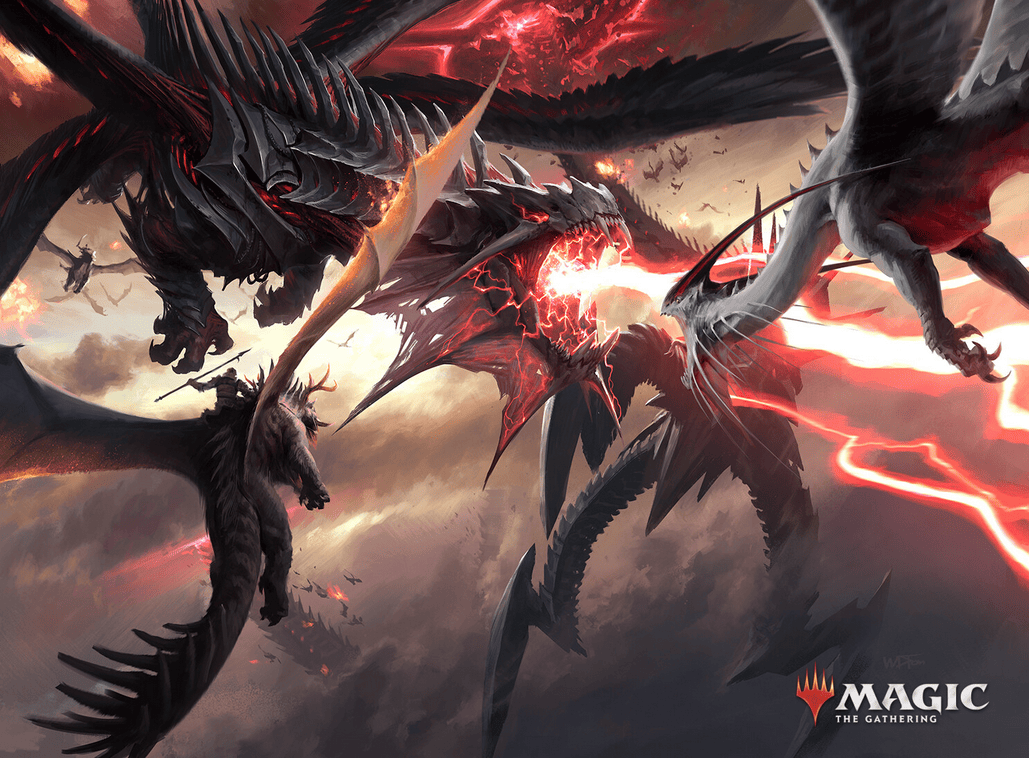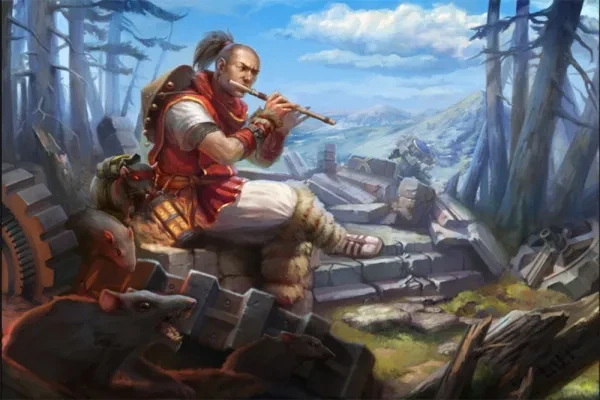
Jumping down a crumbling tower to plunge into a dragon’s back.
Disrupting the flows of energy woven by the evil Lich to nullify its spells.
Spending several days relaxing in town, getting your gear repaired as you practice a trade, or carouse your treasure away.
5th edition Dungeons & Dragons let you do all of this and more. How, do you ask? Through a series of rules, systems, and actions to establish how the player characters can interact with the world and vice versa.
Set in sand, not stone.
At its core, Dungeons and Dragons is a game and games have rules. They give structure and weight to anything that happens throughout the adventure.
The fact that there are rules is what makes it so fun to accomplish things in-game because those mechanics ensure that everything that happens is a fair game instead of the DM’s, or a player’s, whims.
As long as everyone around the table is cool with it, Dungeon Masters and players alike can bend and break rules as they want, for even the Dungeon Master’s Guide explains that the rules are merely a framework to work with, if you don’t like one, you are free to change it.
Changing an existing rule or adding more is what we commonly know as House rules.
There are hundreds of them around the internet and it can be daunting to decide which ones to use, or even to allow them at all. Worry not my friend, whether you’re a DM looking to spice up their game or a player looking for broader horizons, we have made a list of several house rules we recommend for everyone.
15. Flanking.

Positioning hardly matters beyond the range of abilities and where you stand barely makes a difference, well, let’s spice it up with flanking.
Found in older editions, flanking happens when two allied creatures are within the melee range of an enemy but parallel to each other. By standing this way they get an advantage on their attacks against the foe as it can’t defend from both flanks effectively.
Now your combats get another degree of complexity as players and monsters alike to struggle with positioning to get an edge over their foes without being flanked themselves.
Why Flanking is Great:
- It adds another layer of complexity the to 5th edition’s otherwise straightforward combat.
- It encourages teamwork between players and allows them to act more proactively in combat.
- Combat no longer stays stagnant as the participants constantly change positions.
14. Potions can be drunk as Bonus Action.

Potions are consumable magical items that often grant healing, buffs, and spell-like effects to bolster our prowess, sadly, they take an action to use. This means that we have to sacrifice all of our cool actions if we want to use them.
Making it so it takes a Bonus Action to use a potion greatly changes the flow of things, as players (and monsters) can take a broader set of actions around as well as consume potions they would otherwise “save for later” because they want to do a cool thing instead.
Why taking Potions as a Bonus Action is Great:
- It speeds up decision-making at crucial moments as players no longer need to decide between drinking a potion and taking an action.
- Players tend to use consumables more often when they don’t have to sacrifice their main action for them.
13. Standing up from Prone generates AoO.

Thanks to the rules-light approach of 5e’s combat, almost anything besides casting a spell or just attacking an enemy is worth the hassle, however, letting special actions like shoving come with additional benefits can spice up what your players do.
Usually, standing up from prone only takes half your movement speed at no other detriment, now, making it so it also generates an attack of an opportunity adds a new layer of risk to it, forcing players and enemies alike to take a gamble if they wish to recover from a risky position.
Why making it so Standing Up from pone generate AoO is Great:
- This spices up combat as more tactical approaches can be had and players are encouraged to do something besides attacking a foe.
- It makes abilities that benefit from attacks of opportunity truly shine as these are fairly uncommon in a death match encounter.
12. Advantage (and disadvantage) can Stack.

However, not stacking just does not make it worth the hassle of players working together to push their advantage over their opponents.
Making it so any advantages or disadvantages beyond the first one grants a +3 or -3 respectively to the roll emboldens players to go out of their way to help each other and think tactically without truly unbalancing the game.
Keep in mind that this rule goes both ways, so the party will also need to play carefully so they don’t find themselves facing enemies who stacked the odds against them.
Why letting advantage and disadvantage stack is Great:
- Most characters have features that let them gain advantage, so letting them stack makes it so players don’t shy away from using them together.
- Obstacles can be tackled differently now that player characters can expend more resources to improve their odds of succeeding.
11. Spell-Points!

In modern times, the concept of mana or “magical stamina” has been popularized by videogames to the point that most players feel more comfortable with a pool of points to expend than a per-level allotment of reality-altering powers.
Spell points can be found in the Dungeon Master’s Guide as an optional rule. Simply put, these replace Spell Slots and assign spell-casters with a pool of points they can spend to cast their spells and every spell level has its own point cost.
Why Spell Points Are Great:
- Spellcasters have broader control over what spells they cast in a day. Whether they spam a plethora lower-level spells or nuke the field with heavy hitters it’s their choice.
10. Players can lower their Initiative.

With that in mind, sometimes when the dice fall and player turns are too far from each other in the turn order, working together can prove to be a mess.
Letting players who roll high purposely lower their initiative so they can take their turn closer to the rest of the party helps the party plan together and strengthen their teamwork.
Why letting Players Lower their Initiative Is Great:
- Since they can only lower it, they can choose how the flow of battle goes and plan accordingly.
- It strengthens the idea of team play, making it possible in every fight.
9. Inspiration gives a reroll, not advantage.

The issue with advantage is that, unless you use house rule number 12, doesn’t stack.
Making it so inspiration is a reroll rather than advantage lets players expend it more often without fear of it going to waste.
Why making Inspiration a reroll instead of advantage is Great:
- Doing this lets players use their inspirations confidently in any situation.
8. Skills can be critical successes or misses.

On the assumption that you will only roll if it’s achievable, even if it’s almost impossible.
By allowing ability checks to be critical successes or fumbles you can make every skill challenge a thing worthy of note and even take the spotlight of the night while leading to a fun, memorable experience.
Why making Skills subject to Critical Success or Miss is Great:
- You can turn every skill challenge into a thing of interest, turning even the banalest roll into a fun experience.
7. You can make called shots.

By letting your players make called shots, that is to target specific body parts of a creature, you let them mix and match their attacks to further debilitate a creature.
How do called shots to work? There’s no official ruling for this, but in my games it makes it so a creature’s body part gets half-cover of three-quarters cover depending on its size, then, if a player hits, they make a Constitution save against the damage, suffering a penalty if they fail.
Why Called Sots Are Great:
- They introduce a way to play with weak spots and inflict debilitating effects without having to sacrifice an attack.
- Since they increase a creature’s AC, players can now choose to attack them normally or take a Called Shot. By having more options in play, things will rarely go stale.
6. Longer Rests.

By making long rests require a week of relaxation and short rests take 8 hours, you raise the stakes of every encounter and force your players to micromanage their resources.
Why Longer Rests Are Great:
- By raising the stakes this way, you can focus on having fewer combats in a session and more exploration and role-play obstacles as players will tend to become more careful.
5. Players can’t roll below their average Hit Points at Level up.

Letting players have at least average Hit Points when leveling up ensures that they will always be up to the challenge.
Why Average Hit Points Are Great:
- Like any game, 5th edition follows a design balanced around certain assumptions. One of these is that players have a certain amount of Hit Points when tackling challenges, so with this rule, you can make sure all of your challenges are balanced.
4. Turn-based Initiative.

One of the most common parts where games slowdown is rolling initiative.
If you split it so there is only one roll per team (one for the players and another for the enemies) checked by whoever has the highest modifier you can greatly cut down in time and also let players be creative as every round they can choose who goes when during their turn.
Why Turn-based Initiative is Great:
- You can spice up rounds by letting players alter who goes first every time their turn comes up.
- Less time is spent rolling for initiative and it takes a team approach-
3. Max Die Roll + Die Roll for damage when scoring a critical hit.

By making it so every critical hit deals maximum damage plus the extra critical dice, each critical turns into a game-changer that can spell the end for the target, and, since it goes both ways, players are ill-advised to fight at a disadvantage.
Why making Critical Hits work this way is Great:
- Every Critical Hit has more weight and becomes a significant, rewarding event.
- Healing potions, resurrection magic, and tactical combat are encouraged as any hit could be lethal.
2. Masterwork Equipment.

As a callback to older editions, introducing Masterwork equipment adds another way for players to upgrade their equipment and spend their ever-increasing riches.
Masterwork equipment is gear that grants additional properties besides a +1 to Attack or damage. From weighing half as much as they should to granting advantage to a single type of check.
Why Masterwork Equipment Is Great:
- As players grow in level they can come upon large sums of money, far too much to spend. By introducing masterwork in your games, players can customize their gear to fit their tastes while emptying their pockets.
1. Lifestyle bonuses and penalties.

While resting this way, players are encouraged to choose how richly or poorly they live, mechanically, however, this means nothing.
If you let your players benefit, or suffer, some minor effects, they are encouraged to enjoy the amenities of your urban environments and take their downtime as seriously are their adventures.
Why making Lifestyle Matter is Great:
- This opens up the possibility for your players to connect with your setting even as they are resting from adventuring.
- Player characters get a broader set of possibilities and actions that let them immerse themselves in the world.
You may also be interested in:
- The Best D&D Classes (Ranked from Worst to Best)
- Top 25 Best D&D Villains of All Time
- 32 Most Interesting Facts About Dungeons and Dragons!
- 25 Best D&D Games for PC That Every Fan Must Play!
- The 10 Best DnD Streams
- Most Powerful D&D Dragons For Adventurers To Defeat
- Top 10 Best DnD Campaign Ideas
- Top 5 DnD Most Useful Languages
- D&D Top 10 Most Damaging Spells That Obliterate Foes
- Top 15 Most Powerful D&D Spells
- The Best D&D Race for Every Class
- Top 10 D&D Best Quests That Are Amazing
- Top 10 D&D Best Utility Spells
- [Top 10] D&D Best Zombies
- [Top 10] D&D Best Simple Weapons For Killing Foes
- [Top 10] D&D Best YouTube Channels
- [Top 5] D&D Best Tank Builds That Can Withstand Massive Damage

